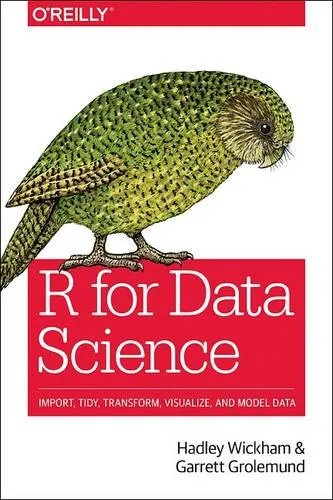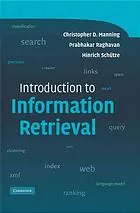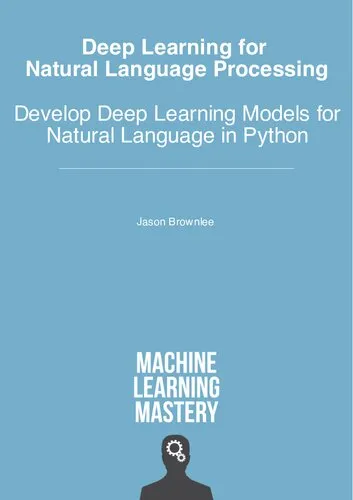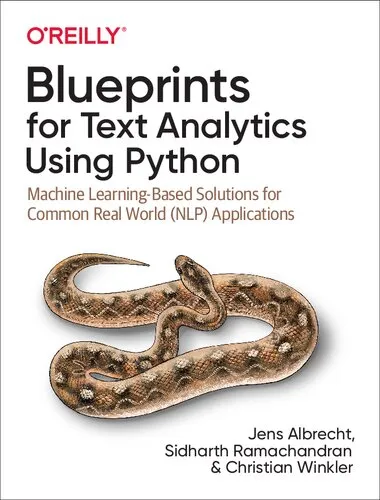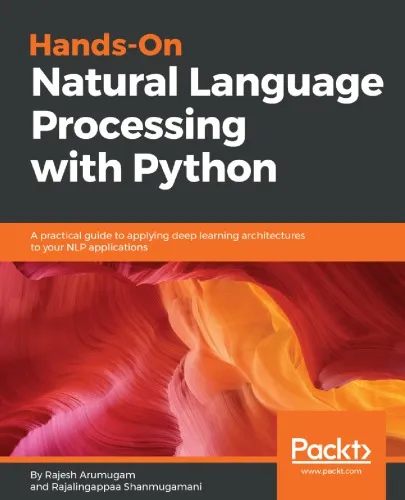Information Retrieval Systems: Theory and Implementation
4.0
Reviews from our users

You Can Ask your questions from this book's AI after Login
Each download or ask from book AI costs 2 points. To earn more free points, please visit the Points Guide Page and complete some valuable actions.Related Refrences:
Introduction to 'Information Retrieval Systems: Theory and Implementation'
Written by Gerald J. Kowalski, 'Information Retrieval Systems: Theory and Implementation' is an authoritative book that dives deep into the world of information storage and retrieval. In today’s digital age, where the accessibility and organization of information are critical to productivity, this book stands as a cornerstone for understanding the theories, methodologies, and technical aspects behind how data is retrieved and structured in computer-based systems.
Whether you're an academic researcher, a student delving into computer science, or a professional working in the field of data science or library science, this book offers comprehensive insights into the mechanics and implementation of sophisticated information retrieval (IR) systems. Spanning key concepts like indexing, query processing, retrieval algorithms, and user interaction, it connects the theoretical underpinnings of IR to practical applications seen in modern search engines and digital libraries. Let's explore what makes this book an essential guide in its field.
Detailed Summary of the Book
The book is meticulously organized to cater to readers who are either new to the subject or seasoned experts. It begins with a historical perspective on the evolution of information retrieval systems, setting the stage for understanding its relevance in current times. Key concepts such as the storage structure models, retrieval methods, and user behaviors are tackled step by step.
One of the major highlights of the book is its coverage of the mathematical and computational foundations behind retrieval systems. Topics like Boolean, vector space, and probabilistic models are explained in great depth. Furthermore, emphasis is placed on modern techniques such as natural language processing (NLP), neural networks, and semantic search, providing insights into how technology has advanced since traditional IR systems.
The book also includes a significant focus on the practical challenges faced in implementing and maintaining IR systems, including scalability, performance tuning, and dealing with unstructured data. Through clear explanations and relevant examples, it bridges the gap between theoretical knowledge and practical execution, making it suitable for both students and professionals aiming to enhance their skills.
Key Takeaways
- Deep understanding of major information retrieval models like Boolean, vector space, and probabilistic models.
- Insights into how search engines, digital resource collections, and other IR systems work.
- Frameworks to design efficient and high-performing information retrieval systems.
- Exploration of natural language processing and how it integrates with IR systems for enhanced user experience.
- Discussion of ongoing trends such as semantic indexing, machine learning, and AI's role in IR.
Famous Quotes from the Book
"At the heart of every information retrieval system lies the user – if we fail to serve the user's needs, the system fails regardless of how advanced it may seem."
"The challenge of information retrieval is not just retrieving data, but ensuring it is the right data, retrieved in the most efficient and meaningful way possible."
Why This Book Matters
The importance of this book cannot be overstated, especially in today's information-driven world. With more data generated daily than ever before in human history, the ability to efficiently retrieve meaningful information is a superpower that drives industries, research, and innovation. Whether it’s powering a search engine like Google or managing large-scale corporate data warehouses, IR systems touch nearly every aspect of modern life.
Gerald J. Kowalski's approach in explaining both foundational concepts and modern trends makes this book essential for those looking to dive into the ever-evolving domain of information retrieval. It caters to a wide audience by seamlessly blending academic rigor with real-world relevance. Whether you're working on optimizing search algorithms, designing user interfaces for better search experiences, or researching new retrieval methods, this book serves as a trusted guide.
Moreover, the text emphasizes the human factor in IR systems, reminding readers that all this technology ultimately revolves around improving the user's ability to find meaningful and accurate information. This human-centric perspective makes the book not just technically enriching but also philosophically profound.
Free Direct Download
You Can Download this book after Login
Accessing books through legal platforms and public libraries not only supports the rights of authors and publishers but also contributes to the sustainability of reading culture. Before downloading, please take a moment to consider these options.
Find this book on other platforms:
WorldCat helps you find books in libraries worldwide.
See ratings, reviews, and discussions on Goodreads.
Find and buy rare or used books on AbeBooks.
1379
بازدید4.0
امتیاز0
نظر98%
رضایتReviews:
4.0
Based on 0 users review
Questions & Answers
Ask questions about this book or help others by answering
No questions yet. Be the first to ask!

